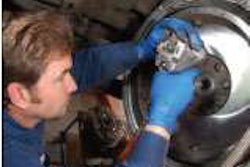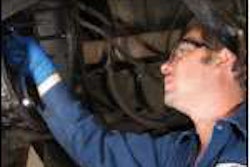I’ve yet to speak to anyone in trucking who’s overjoyed about Comprehensive Safety Analysis 2010. After all, a much more meticulous safety mindset will be required to avoid getting caught on the radar of this huge data-crunching machine when it cranks up in December.
Some carriers in CSA 2010 test states have been to the mountain, seen the New World Order, and report that yes, it is a massive, intrusive project. But there’s a good side, too, for drivers and carriers. Or “good for you,” like medicine, in that it’s forcing some tedious but long-overdue safety practices. Some will help drivers keep their jobs and relieve anxiety that can come with the creative logging necessitated by uncaring shippers, receivers and dispatchers.
That conclusion is based on comments from Aaron Thompson, vice president of operations for Kansas City, Mo.-based American Central Transport. He spoke to fleet executives at this week’s CCJ Symposium 2010 in Birmingham, put on by Overdrive’s sister publication Commercial Carrier Journal.
As for logging and compliance, ACT hasn’t mandated electronic onboard recorders, as have a growing number of large fleets, Thompson said. But they’ve introduced it, and actually have a waiting list of drivers who want in on the program. Imagine that! Here are other points he made about logging and other changes inspired by CSA 2010:
- Since a delay at a shipper or receiver can mean an hours violation for a trucker forced to drive away, ACT is getting customers to arrange emergency truck parking.
- Likewise, if a loading delay requires an adjusted delivery time, ACT is rescheduling accordingly.
- With more emphasis on drivers having accurate logs, “It forced them to trip-plan better,” Thompson said. Those who did “experienced a little bit higher mileage” from the smarter use of time.
- ACT is working closer with shippers to ensure that cargo is properly secured.
- Pre-trip and post-trip inspections improved. “They know violations will stay on their records for the next 36 months,” he said.
- Instead of procrastinating minor repair work, drivers are making more visits to the company’s “express bay” to avoid tickets that could damage their careers.
- For the same reason, calls have increased to the company’s breakdown line to try to get minor problems fixed on the road.
- Drivers are filing more reports of trailer damage by shippers and receivers.










